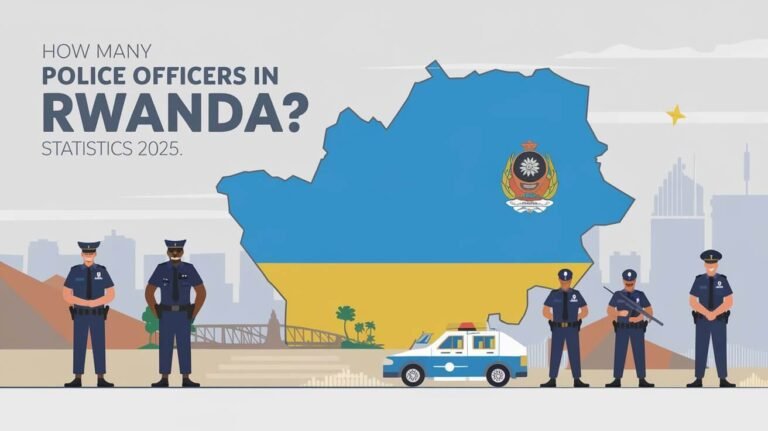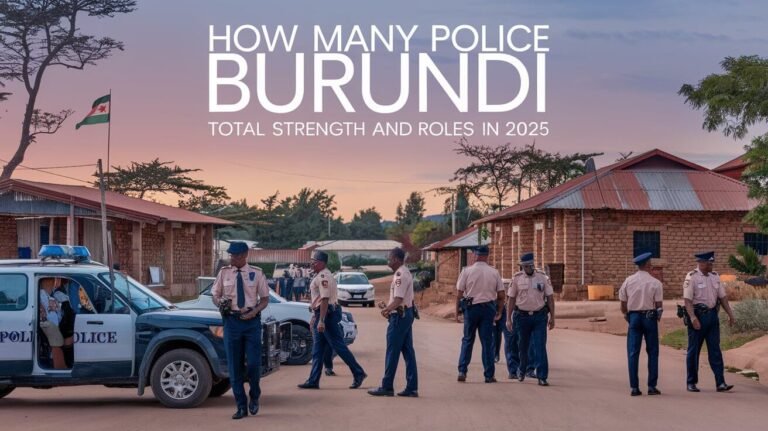Why Do You Want to Be a Police Officer? Best Answers

Choosing a career in law enforcement is more than just enforcing laws. It’s about making a real difference in your community. Police officers do many things, like fighting crime and building trust with locals.
So, what makes someone want to be a police officer? What rewards does this job offer? Let’s explore the reasons why becoming a police officer could be the right choice for you.
Making a Positive Impact in Your Community
As a police officer, you are key to keeping the community safe. You help prevent crime and build trust. By talking to residents and joining outreach programs, you can make a big difference.
Building Trust with Local Residents
It’s important to have strong bonds with the community. Programs like Coffee With a Cop, Citizen Police Academies, and Cops and Barbers help. They let officers meet people in a casual way, which helps everyone understand each other better.
Crime Prevention and Public Safety
Your work in stopping crime and keeping people safe is vital. By working with the community, you can find and fix problems that lead to crime. Programs like D.A.R.E. and LEAP teach people how to help keep their neighborhoods safe.
Community Outreach Programs
- More than 300 Police Athletics/Activities League (PAL) groups in the U.S. offer sports, learning, and mentorship for kids.
- The Shop With a Cop program lets officers help kids buy holiday gifts with gift cards.
- The LAPD Read Along program has police reading to kids at libraries in Los Angeles.
Joining these community outreach programs helps you build trust and make a real difference in people’s lives.
Why Do You Want To Be A Police Officer
Being a police officer is a calling for those who love to uphold the law and protect their community. Many are drawn to the duty of serving and safeguarding others. They want to make a positive impact and bring justice to their neighborhood.
The job of a police officer is dynamic and always changing. It’s a challenging and rewarding career. Officers get to work with different communities, build strong relationships, and face new challenges every day. Some are inspired by TV shows or movies about police. Others want to be real-life heroes, using their skills to help others.
- Desire to serve and protect the community
- Interest in upholding the law and promoting public safety
- Passion for facing daily challenges and making a positive impact
- Inspiration from media representations of law enforcement
- Aspiration to become a real-life hero in the community
The law enforcement career lets you work with diverse groups and build trust with locals. You can also join community outreach programs. By following the core principles of policing, officers can truly make a difference in people’s lives.
Career Benefits and Financial Security
Law enforcement careers provide competitive compensation packages and benefits that ensure stable, long-term financial security. Police officers in the U.S. get good pay and benefits. These help them build a secure future.
Competitive Salary and Benefits Package
The U.S. Bureau of Labor Statistics says police officers and detectives make about $74,910 a year. This is more than the average job’s pay of $46,310. Some police officers even earn over $109,580 annually.
Law enforcement jobs also come with great benefits. These include health and dental insurance, retirement plans, and paid vacation. Many departments also offer life insurance, help with college costs, and other benefits.
Retirement Plans and Healthcare Options
- Most police departments have pension plans. Officers get 50-80% of their pre-retirement salary.
- About 40% of officers have 401k-style retirement funds. Departments help with these plans.
- More than 90% of officers get health insurance from their employer. The costs are low.
Job Stability and Growth Opportunities
The need for skilled police officers is high. The Bureau of Labor Statistics expects a 3% job growth rate from 2022-2032. This makes law enforcement a stable career choice.
Police officers can move up from patrol officer to specialist roles. They can even become sergeants, lieutenants, or chiefs. The field offers many chances to grow and find new interests.
Daily Challenges and Dynamic Work Environment
Being a police officer is not about routine. Every day brings new challenges that test quick thinking and adaptability. Officers face a variety of situations, from routine patrols to emergency responses, all while keeping public safety in mind.
Police work is always changing. No two days are alike. Officers must be ready for anything, including:
- Responding to calls for service, ranging from minor disturbances to serious crimes
- Enforcing traffic laws and investigating accidents
- Interacting with diverse community members and building trust
- Conducting investigations and gathering evidence for legal proceedings
- Providing emergency first aid and coordinating with other public safety agencies
The job’s variety and need for vigilance can be both thrilling and tough. Officers need a mix of skills, including:
- Effective Communication: The ability to calm tense situations and clearly share information with others.
- Critical Thinking: The skill to analyze complex situations, find the root cause, and solve problems.
- Collaboration: The ability to work well with others to solve cases and respond to emergencies.
- Attention to Detail: The discipline to document evidence and notice important details that help in investigations.
Despite the challenges, police officers find great fulfillment in their work. They know their efforts keep communities safe. The job’s dynamic nature and chance to make a difference keep officers motivated and dedicated to excellence in law enforcement.
Essential Qualifications and Requirements
To become a police officer, you must meet certain requirements. You need to be at least 21 years old and a U.S. citizen or have legal work permission. You also need a high school diploma or GED, pass a physical fitness test, and undergo a detailed background check.
Educational Prerequisites
While a high school diploma or GED is the basic requirement, many agencies prefer or require college courses in criminal justice or related fields. They also value skills like speaking a foreign language, being computer savvy, and having experience in customer service or community work.
Physical Fitness Standards
- Candidates must pass specific physical fitness tests, including strength, endurance, and agility.
- They need 20/20 corrected vision and normal color perception.
- Applicants must be in good health, without any physical or mental issues that could affect their job as a police officer.
Background Check Process
The background check for law enforcement officers is very detailed. It looks at your work history, criminal records, financial status, and personal references. If any problems are found, you might not be considered for the job.
Fulfilling these requirements, candidates show they are committed to the criminal justice system. They are ready to serve their communities as dedicated and responsible police officers.
The Path Through Police Academy Training
Becoming a law enforcement officer requires thorough training. This training gives recruits the skills and knowledge they need. The police academy program mixes classroom learning with hands-on training. It covers important topics for police duties and criminal justice.
Police academy training in the U.S. lasts about five months, or 833 hours. The curriculum includes law enforcement strategies, weapons handling, and community collaboration. Recruits also learn mental toughness and physical training.
Physical training is key, with tasks like a 99-yard obstacle course and a 1.5-mile run. The training prepares recruits for both stressful and non-stressful situations. After graduating, new officers learn by working with experienced officers.
| Training Component | Description |
|---|---|
| Criminal Law | Instruction on various criminal statutes, search and seizure laws, and legal procedures |
| Defensive Tactics | Training in self-defense, restraint techniques, and use of force |
| Firearms Training | Proficiency in the safe handling, maintenance, and operation of firearms |
| Emergency Response | Preparation for responding to a variety of emergency situations, including traffic accidents and natural disasters |
| Physical Fitness | Development of physical strength, endurance, and agility through rigorous training |
| Ethics and Decision-Making | Instruction on professional conduct, ethical decision-making, and community engagement |
The police academy training is tough but prepares recruits well. It transforms them into dedicated law enforcement officers. By completing the training, graduates are ready to serve their communities with professionalism and integrity.
Specialized Units and Career Advancement
A career in law enforcement offers many chances to specialize and move up. Officers can join units like SWAT teams, K-9 units, and investigative teams. This lets them become experts in certain areas and make their work more exciting.
SWAT and Tactical Operations
SWAT teams handle high-risk situations, like hostage crises and active shooters. Officers in these teams get a lot of training in weapons, tactics, and crisis management. They play a key role in keeping the public safe during these critical times.
K-9 Units and Special Divisions
K-9 units work with trained police dogs to help with various tasks. These include tracking suspects, finding drugs or explosives, and locating missing people. Officers and their K-9 partners form strong bonds, using their skills to improve police work. Agencies also have special divisions like forensics, narcotics, or community policing, where officers can focus on their interests.
Detective and Investigation Roles
For those interested in solving crimes, becoming a detective is an option. Detectives collect evidence, interview witnesses, and solve complex cases. They need to be good at thinking critically, solving problems, and communicating well. As they gain experience, they might lead investigative teams or become supervisors.
Career advancement in law enforcement encompasses many paths beyond specialized unit assignments. Officers can also move up the ranks to become sergeants, lieutenants, or captains. Promotions depend on years of service, training, and passing exams. By always improving their skills and looking for new challenges, police officers can have rewarding and fulfilling careers.
Building Strong Professional Relationships
Police officers are key in keeping their communities safe. Building strong professional relationships is vital for effective law enforcement. These connections are not just with other officers but also with the community. They help build trust, cooperation, and safety for everyone.
Policing is a team effort. Officers often form strong bonds with their colleagues. This bond is important for teamwork, support, and unity in the police force.
Officers also work hard to connect with local residents. They do this through community outreach, problem-solving, and fairness in policing. This helps them gain the trust and confidence of the people they protect and serve. These relationships are key for solving local problems, improving public safety, and getting people involved in community service.
The role of strong professional relationships in law enforcement is huge. By creating a culture of trust, communication, and teamwork, police can fight crime better. They can also improve community well-being and leave a positive mark on the neighborhoods they serve.
Making a Difference Through Public Service
Working in law enforcement lets you make a real difference in your community. As a police officer, you get to serve and protect people. You also help keep the law and contribute to the greater good.
Your role in public safety means you’re part of something big. You make a real difference in people’s lives every day. This is a privilege and a responsibility.
Police officers build trust and positive relationships with the community through service and outreach. By addressing crime and ensuring public welfare, you help keep your neighborhood safe. Your work improves the quality of life for everyone.
Your commitment to community service, public safety, and upholding the law is felt by those you serve. It’s a rewarding feeling to know you’re making a difference.
Law enforcement also gives you the chance to protect and serve in life-saving situations. Whether it’s responding to emergencies or stopping dangerous criminals, your actions can have a lasting impact. It’s a fulfilling part of this career.
Starting a career in law enforcement means you’re helping your community. Your dedication to public service and justice is key to creating a safer, fairer society for everyone.
Real-Life Impact and Life-Saving Opportunities
Police officers often find themselves in situations where they can directly protect and serve by saving lives. They provide critical first aid and prevent accidents through vigilant public safety efforts. They also recognize and address domestic abuse situations and respond swiftly to emergencies.
Officers must be ready to act quickly and decisively in life-threatening situations. They make split-second decisions that can have profound impacts. Whether it’s administering CPR, extracting individuals from a burning building, or deescalating a volatile confrontation, their actions can mean the difference between life and death.
Veteran officers with decades of experience continue to show the true spirit of this noble profession. Despite facing challenges from media coverage and public perceptions, they remain steadfast in their mission to protect and serve their communities.
Common Questions
Why do you want to be a police officer?
Many people want to be police officers because they want to help others. They aim to serve their community and bring justice. The job lets them work with different people, build relationships, and face new challenges every day.
Some are inspired by police in movies. Others want to be real-life heroes. The job needs quick thinking, being adaptable, and solving problems well.
How can I make a positive impact in my community as a police officer?
Police officers keep communities safe and help those in need. They work to lower crime rates and improve life quality. They also make sure everyone feels safe.
They do community outreach and join local events. This helps build trust and cooperation with the people they serve.
What are the benefits of a law enforcement career?
Law enforcement careers offer good pay and benefits. The median salary for police and detectives in 2023 was $74,910 a year. They get health insurance, retirement plans, and paid time off.
The job is stable, with a constant need for safety professionals. There are chances to move up in rank, from patrol officer to higher positions.
What qualifications are required to become a police officer?
To become a police officer, you need to meet certain requirements. You must be at least 21, a U.S. citizen or have legal work permission, and have a high school diploma or GED.
You also need to pass a physical test and a background check. Some departments want college credits in criminal justice. A clean driving record is also required.
What kind of training is involved in becoming a police officer?
Police academy training is both classroom and hands-on. It covers criminal law, defensive tactics, and firearms training. You also learn about emergency response, physical fitness, and ethics.
After graduating, new officers get field training. They work with experienced officers to apply their skills in real situations. This training includes patrol duties, traffic stops, and community interaction.
What are the specialized units and career advancement opportunities in law enforcement?
Law enforcement offers many special roles. Officers can work in forensic science, K-9 units, SWAT teams, narcotics, or community policing. These roles let officers develop expertise and add excitement to their work.
There are chances to move up in rank and take on leadership roles. This allows for career growth and new challenges.
How do police officers build strong professional relationships?
Police officers form strong bonds with their colleagues. They share experiences in tough situations, creating a sense of kinship. This teamwork is key for success.
They also build trust with community members. These relationships are essential for effective policing and improving public safety.
How can a career in law enforcement make a difference in people’s lives?
A career in law enforcement lets officers make a big difference every day. They serve their community, protect the vulnerable, and work for the greater good. It’s a calling for those who want to uphold justice.
Officers are part of something bigger, making a meaningful contribution to society.
What are the life-saving opportunities in a law enforcement career?
Police officers often save lives in critical situations. They provide first aid, prevent accidents, and address emergencies. Their ability to make a difference is a strong motivator.
Officers must act quickly and make important decisions. These decisions can have a huge impact on people’s lives.






